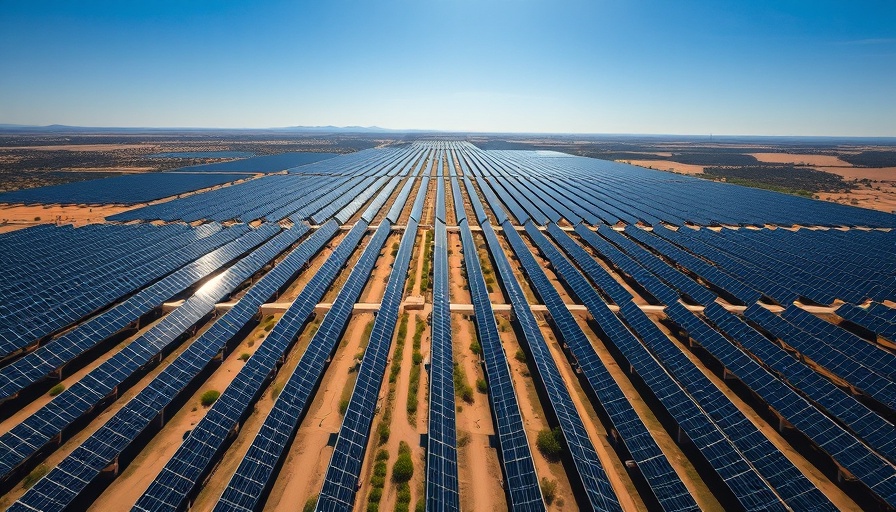
The Growing Divide in Solar Energy Support
Recent studies illustrate a significant shift in public perception toward solar energy, revealing growing political polarization in support of renewable energy initiatives. Between 2016 and 2022, a comprehensive study analyzing over 8 million social media posts indicated that, while enthusiasm for solar energy remains robust, the sentiment has sharply declined among specific demographics, particularly in Republican-leaning regions. This trend highlights a concerning narrative where regional political affiliations increasingly dictate perspectives on critical environmental issues.
Historical Context of Solar Energy Adoption
Since the early 2000s, solar energy has been hailed as a promising alternative to fossil fuels, spurred by technological advances, federal incentives, and an increasing awareness of climate change. Major growth was observed from 2013 to 2022, with a peak in favorable sentiment around 2016 when 65% of social media posts reflected positive attitudes toward solar initiatives. However, this historical moment of bipartisan enthusiasm seems to be fading, suggesting a need for reevaluation of how renewable energy policies are communicated across the political spectrum.
The Impact of Regional Differences on Solar Support
Support for solar energy has varied significantly across different states. The analysis revealed that while states like Vermont, Massachusetts, and New York remained enthusiastic about solar technologies, states such as Alabama and Louisiana expressed much lower support. The contrast between these regional attitudes suggests that local political climates, cultural values, and economic circumstances influence how communities adopt and support solar initiatives.
Understanding Political Polarization in Energy Policy
The study suggests that political ideologies increasingly shape the narratives surrounding solar energy. For example, while support in Republican-leaning areas was nearly equal to that in Democrat-leaning areas in 2016, by 2022, this alignment had diverged significantly. The increase in opposition posts—from 7% in 2016 to 28.4% by 2022—indicates not just a simple decline in support but a rejection of the renewable energy discourse prevalent in many urban, liberal areas.
The Consequences of a Polarized Energy Debate
Such polarization presents risks for policy formulation and sustainability initiatives. When political affiliations dictate energy preferences, it complicates bipartisan support necessary for comprehensive energy reform. As noted by Serena Kim, the lead researcher and an assistant professor at North Carolina State University, these shifts could influence policies that directly affect the growth of sustainable energy, ultimately prolonging reliance on less sustainable sources of power.
Actionable Insights for Stakeholders
For solar business professionals and policymakers, understanding these dynamics is essential. Acknowledging the political landscape and adapting communication strategies to appeal to diverse demographics can enhance support for solar initiatives. This could involve targeted educational campaigns that demystify solar technologies and their economic benefits and address common misconceptions that might exist in more conservative regions.
Future Recommendations to Bridge the Divide
As the solar industry advances, strategies must emphasize community engagement and bipartisan dialogue. Efforts directed at showcasing the economic advantages of solar energy, such as job creation and energy independence, could foster a more unified approach to renewable energy adoption. Furthermore, facilitating public discussions that include diverse political voices might lead to more favorable outcomes for solar policies.
This study serves as a reminder that support for solar energy is not just about environmental benefits but also about the prevailing political climate. If stakeholders do not address these underlying sentiments, the vision for a renewable future may become increasingly polarized, benefiting neither the environment nor the economy.
 Add Row
Add Row  Add
Add 



